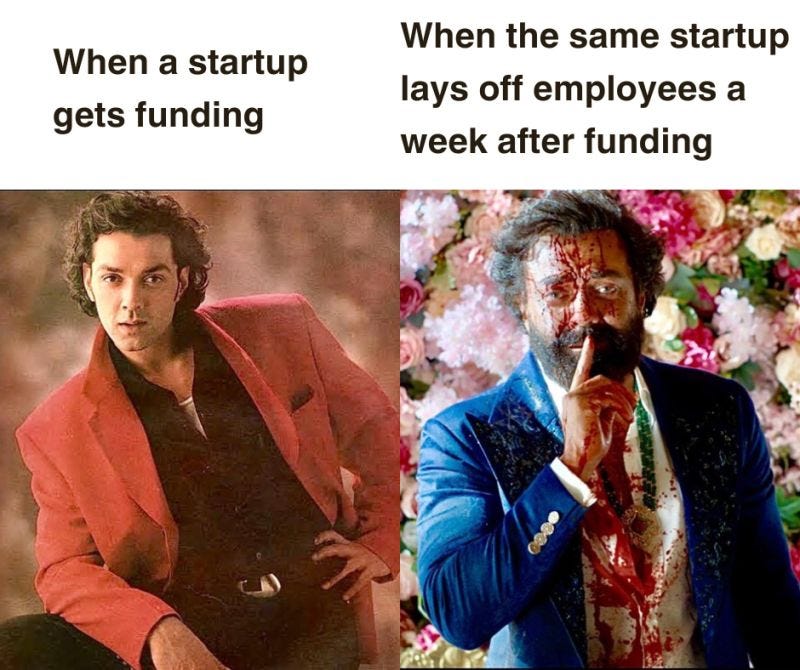Will Flutterwave’s IPO Bring More Startups to NGX?
Plus 54 Collective to Cut Jobs as Mastercard Foundation Partnership Ends
Happy Monday and Happy New Month!
In our recent Tech Tides Africa Podcast episode, we explored the evolution of embedded finance in Kenya and examined how NCBA Loop is reshaping digital banking. We also discussed Jumia’s latest cost-cutting strategy and questioned whether it will finally lead to profitability. Meanwhile, Oui Capital secured an astonishing 53x return on its $150K investment in Moniepoint. Furthermore, we unpacked recent findings that revealed eight African nations rank among the top 20 countries most affected by cyber attacks and explored NITDA's new regulations mandating cloud providers to store critical data within Nigeria.
🔥 Stay ahead of Africa’s tech evolution! Listen now
Here’s what else we have lined up for you this week:
Will Flutterwave’s IPO Bring More Tech Startups to Nigeria’s Stock Exchange?
What We Learnt From ConnectMed's Closure
54 Collective to Cut Jobs as Mastercard Foundation Partnership Ends
That’s not all; we also have must-read resources, funding opportunities, people building cool stuff, and top job openings at leading tech startups.
Will Flutterwave’s IPO Bring More Tech Startups to Nigeria’s Stock Exchange?
Last Saturday, Flutterwave’s CEO reportedly met with President Bola Tinubu to explore the possibility of listing the fintech giant on the Nigerian Stock Exchange (NGX). Bayo Onanuga, the President's special adviser, disclosed this in a statement.
For Nigeria’s capital market, securing a listing from a high-profile company like Flutterwave could set a precedent for other tech startups to follow. The NGX has been dominated by traditional industries such as banking, oil and fast-moving consumer goods sectors, so this move could bring fresh energy to the exchange and attract a younger generation of investors who have largely turned to international markets. However, the feasibility of this move is up for debate.
Two critical factors will determine feasibility. The first is NGX market Liquidity. Flutterwave’s last known valuation was $3 billion. NGX's total market capitalization is approximately $44 billion, and the exchange sees daily trading volumes below $15 million. If Flutterwave’s valuation holds, it would represent about 7% of NGX’s total value, a massive concentration of risk for an exchange with relatively low liquidity.
These numbers raise concerns about whether NGX can absorb an IPO of this scale. Unlike global stock markets, which are accustomed to high-growth tech stocks, NGX’s investors prefer stocks with consistent dividend payouts. For Flutterwave’s investors, an IPO would primarily be a liquidity opportunity, a pathway to cashing out their returns. However, listing on NGX may not provide the liquidity these investors need.
The second factor would be Profitability Constraints. Like many venture-backed startups, Flutterwave has prioritized rapid scale over profitability over the years. NGX requires companies to be profitable before listing, which presents a challenge unless exceptions are made.
One potential solution to the liquidity factor is dual listing, going public on both the NGX and an international exchange like NASDAQ. This would offer investors access to deeper capital pools while still showing commitment to the Nigerian market. However, it could also lead to significant compliance costs and regulatory complexities.
For now, Flutterwave is focused on profitability before pursuing an IPO. Until then, its listing on the NGX or any other exchange remains uncertain.
What We Learnt From ConnectMed's Closure
ConnectMed, a Kenyan e-health startup launched in 2017, revolutionized healthcare access by enabling patients to consult licensed medical professionals via video call. The platform offers same-day appointments for acute and chronic conditions, prescriptions, sick notes, and referrals.
To expand accessibility, ConnectMed introduced telehealth kiosks within pharmacies, growing to over 30 locations, including major pharmacy chains and Merck’s CURAFA points of care. Over its lifespan, the startup served 8,000+ patients and corporate clients while securing over $300,000 in funding.
Despite its innovation and early success, ConnectMed shut down in December 2018 after global healthcare giant Merck acquired its technology.
Read our case study here to learn what led to its closure.
54 Collective to Cut Jobs as Mastercard Foundation Partnership Ends
54 Collective, Africa’s most active venture capital (VC) firm, formerly known as Founders Factory Africa, is shutting down its entire venture studio team. The venture studio has supported its portfolio companies across product development, technology, marketing, growth, human resources, and business development. According to anonymous senior officials who spoke to the Rest of World, layoffs will follow as a result of this decision.
The closure is tied to the end of 54 Collective’s partnership with the Mastercard Foundation, an international nonprofit that has played a critical role in the firm’s operations. The Mastercard Foundation has backed 54 Collective’s venture studio, Gen F accelerator, and Entrepreneur Academy. The VC firm announced that both organizations will pursue “different strategies” moving forward, and their partnership officially ends on April 30, 2025.
Founded in 2018 and headquartered in South Africa, 54 Collective has invested in over 70 startups. In August 2023, the firm secured its largest funding round, $114 million from the Mastercard Foundation and Johnson & Johnson Impact Ventures. Under this deal, the Mastercard Foundation committed to investing $20 million per year over five years.
Since the partnership began, over 40 startups have received direct support, contributing to the creation of more than 17,500 jobs. Additionally, 600 grants have been awarded to SMEs through the Entrepreneur Academy.
The shutdown of the venture studio is a setback for 54 Collective and the broader African startup ecosystem, which has been struggling with a decline in funding since 2022. International investors are becoming increasingly cautious, and this development could further impact investment sentiment toward African startups.
The African startup ecosystem will be watching closely to see how 54 Collective adapts to this new chapter.
Did you know?
According to FITC, women are making strides in Africa’s tech industry! According to UNESCO, women make up 30% of tech professionals on the continent, slightly above the 28% global average.
This week’s poll…
Other Interesting Reads
Edukoya shuts down, to return investment after three years in Nigeria's edtech space
The 8 Stages of Startup Funding: A Practical Guide for Founders
Sendstack cofounder Ifeoma Nwobu steps down as startup undergoes second pivot
Funding opportunities 💰
Share this opportunity with someone in your circle!
Selar Tuition Fund is Back (for students, today’s the last day)
People building cool stuff 🚀
These companies are hiring:
Piggyvest is hiring for several roles.
Shuttlers is hiring for a growth lead and head of marketing.
Zedcrest is looking for a product manager
Join Ant as a senior mobile engineer
Cheers to a productive and successful week ahead!







